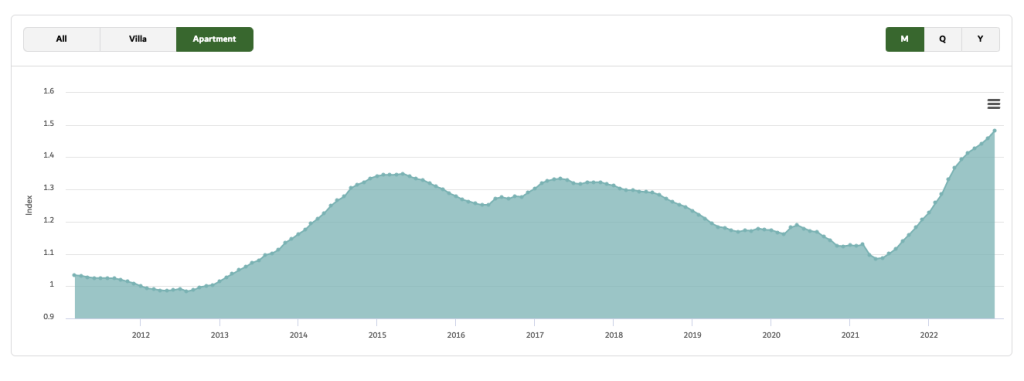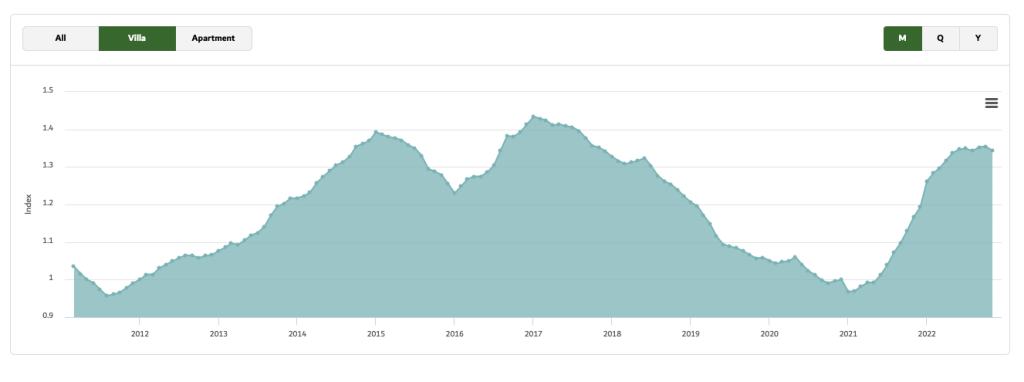Dubai’s housing market has been experiencing steady growth, driven by an economic rebound, higher energy prices, and a resurgence in trade and tourism. The market’s upward trajectory, propelled by foreign investor demand, has left many wondering about its implications for first-time buyers and renters. In this article, we will explore the recent growth projections for Dubai’s housing market, the factors behind the market’s success, and the challenges that lie ahead in terms of affordability.
Growth Projections
A recent Reuters poll predicts that Dubai’s house prices will rise by 7.5% in 2022, maintaining the market’s positive momentum. However, the pace of growth is expected to slow down in the coming years, with projected increases of 4.5% in 2023 and 3.0% in 2024. The steady growth rates can be attributed to strong demand from foreign investors, who are attracted to Dubai’s improving economic conditions and liberal visa policies.


Despite the market’s impressive growth, Dubai’s housing sector faces several risks, such as higher interest rates, a lack of affordable homes, and inflationary pressures. Affordability for first-time buyers is expected to worsen in the coming years, with 11 out of 12 analysts in the Reuters poll predicting a decline in affordability.
Economic Rebound and Record Sales Transactions
Higher energy prices, coupled with the revival of trade and tourism, have contributed to Dubai’s property market rebound. Data from the Dubai Land Department showed that the emirate’s real estate sector had its best quarter in over a decade, with Q1 sales transactions reaching their highest levels since 2010. The successful hosting of the World Expo and the reopening of travel corridors have further boosted market sentiment.
Challenges Ahead
The Rental Market
The rental market in Dubai, which houses a large number of expatriates, is also expected to face challenges in terms of affordability. A strong two-thirds majority of experts in the poll indicated that rents in Dubai would be less affordable over the next two years. As the cost of living in the emirate increases, those who are priced out of the property market may be forced to continue renting, further driving up demand and rental prices.
Conclusion
Dubai’s housing market is on track for steady growth in the coming years, thanks to strong foreign investor demand and an economic rebound. However, the market’s success may also bring about affordability challenges for first-time buyers and renters. As the market continues to evolve, it will be crucial for policymakers, developers, and investors to address these challenges and ensure that Dubai remains an attractive and accessible destination for both property buyers and renters alike.



